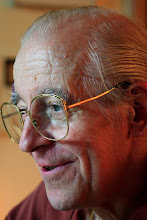King Yongjo (英祖, 영조, 1694-1776, r.1724-1776) of the Choson Dynasty (朝鮮國, 조선국, 1392-1910) is known to have abhorred alcohol. He fought persistently against the intoxicating liquid during his lengthy 53-year reign. He punished a high-level military officer, Yun Ku-yon (연구윤), with death in 1762 for violating prohibition of alcohol. Court aides complaining of such harsh punishment for having a drink were all sacked and kicked out.
The Korean history also shows a liquor ban was popularly used during famine years. The first-ever prohibition in Korea, introduced by King Taru (多婁王, 다루왕, ??-77, r.28-77) of Paekche Kingdom (百濟, 백제, 18 BC-660 AD), was brought about because of famine.
The United States made manufacturing, trade and sales of alcohol illegal nationwide for 14 years from 1919, succumbing to the temperance movement by Protestants disapproving of the negative social impact of Americans’ drinking behaviour.
The campaign caught on across the Pacific in Korea, under Japanese rule (1910-1945) at that time, was led by religious leaders here. An editorial in a Christian newspaper in 1927 read: “Spending on liquor amounts to 83 429 170 won a year. That can cover living expenses for some 417 145 people a year when assuming living costs of 200 won per person… Do you still want that drink?”
Prohibition was not without side effects and backlashes. Corrupt officials in the Choson Dynasty frequently raided and burst in on saloons to fatten their pockets. When King Chongjo (正祖, 정조, 1752-1800, r.1776-1800), Yongjo’s grandson, succeeded to the throne, he questioned the effectiveness of prohibition. “My grandfather, the king, took a man’s life for drinking and yet alcohol survived.”
Prohibition in the United States triggered smuggling and proliferation of black markets. Alcohol warehouses and drugstores served as a gold mine for the mafia and gangsters.
It is hard to find extensive sumptuary law on alcohol in modern states. Instead, there are public place and time restrictions, religious proscriptions and taxes. Funds from public and religious organisations keep their distance from the liquor, tobacco or gambling industries. Many advanced countries also tax ‘sinful’ liquor-related activity. These societies tax alcohol because it can cause social harm, such as drunk driving, as well as negative economic consequences because of health risks.
Here in Korea, Finance Minister recently hinted that the government may introduce a so-called ‘sin tax’ as “higher taxes on liquor and tobacco can boost government revenue and at the same time help public health by discouraging consumption of health-hazardous articles.” Taking the cue from top government officials, the state-run tax research institute did a public hearing on an excise tax to incorporate taxing objects of widespread disapproval.
‘Sin tax’ could kill two birds with one stone, but why does it feel like the government is inspired more by generating revenue than a genuine concern for public health?
The Korean history also shows a liquor ban was popularly used during famine years. The first-ever prohibition in Korea, introduced by King Taru (多婁王, 다루왕, ??-77, r.28-77) of Paekche Kingdom (百濟, 백제, 18 BC-660 AD), was brought about because of famine.
The United States made manufacturing, trade and sales of alcohol illegal nationwide for 14 years from 1919, succumbing to the temperance movement by Protestants disapproving of the negative social impact of Americans’ drinking behaviour.
The campaign caught on across the Pacific in Korea, under Japanese rule (1910-1945) at that time, was led by religious leaders here. An editorial in a Christian newspaper in 1927 read: “Spending on liquor amounts to 83 429 170 won a year. That can cover living expenses for some 417 145 people a year when assuming living costs of 200 won per person… Do you still want that drink?”
Prohibition was not without side effects and backlashes. Corrupt officials in the Choson Dynasty frequently raided and burst in on saloons to fatten their pockets. When King Chongjo (正祖, 정조, 1752-1800, r.1776-1800), Yongjo’s grandson, succeeded to the throne, he questioned the effectiveness of prohibition. “My grandfather, the king, took a man’s life for drinking and yet alcohol survived.”
Prohibition in the United States triggered smuggling and proliferation of black markets. Alcohol warehouses and drugstores served as a gold mine for the mafia and gangsters.
It is hard to find extensive sumptuary law on alcohol in modern states. Instead, there are public place and time restrictions, religious proscriptions and taxes. Funds from public and religious organisations keep their distance from the liquor, tobacco or gambling industries. Many advanced countries also tax ‘sinful’ liquor-related activity. These societies tax alcohol because it can cause social harm, such as drunk driving, as well as negative economic consequences because of health risks.
Here in Korea, Finance Minister recently hinted that the government may introduce a so-called ‘sin tax’ as “higher taxes on liquor and tobacco can boost government revenue and at the same time help public health by discouraging consumption of health-hazardous articles.” Taking the cue from top government officials, the state-run tax research institute did a public hearing on an excise tax to incorporate taxing objects of widespread disapproval.
‘Sin tax’ could kill two birds with one stone, but why does it feel like the government is inspired more by generating revenue than a genuine concern for public health?
Giorgio Olivotto
Seoul, Korea
July 18, 2010
Seoul, Korea
July 18, 2010

Nessun commento:
Posta un commento